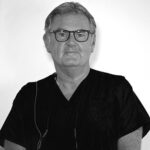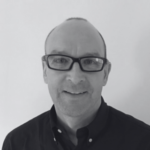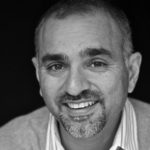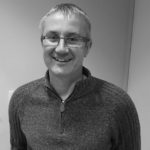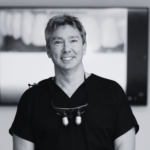Diploma in Implant Prosthodontics (Level 7)
The Diploma in Implant Prosthodontics (Level 7) is made up of the Restorative course & the Implant course.
The Diploma in Implant Prosthodontics is focused on delegates who want to build-up their skills to treat simple implant patients with a focus on restoring implants. The qualification consists of 29 modules in the form of seminars, practical sessions, demonstrations, live patient surgery days and online zoom seminars. 25 modules are face-to-face and 4 are online.
The course covers the key aspects of restorative dentistry and dental implantology to provide evidence based, safe and predictable treatment of participants own cases. Knowledge of topics such as Occlusion and use of articulators provides additional grounding for a dentist to treatment plan a case and then place and restore an implant to deliver best results to patients.
As a live patient course, there is significant focus on patient selection and identification of suitable implant patients using latest techniques and diagnostic tools. We ensure that planning stages are comprehensive and thorough, assuring that the patient journey is smooth and predictable. The Restorative part of the course covers topics such are Occlusion, Articulators, TMJ Splints, Basic Tooth Preparations, Introduction to Endodontics & Periodontics and Treatment Planning. These topics prepare a delegate to identify, plan and deliver treatment results with best outcomes.
During the course, there are 8 full days of live implant surgery sessions on delegates own patients. During the course you will gain the hands-on experience to ensure you can provide evidence based, safe and predictable treatments to your patients. As delegates work towards placing implants under supervision, they will be able to practice these skills by treating patients, not only delivering results but knowing the reasons why the results were delivered.
Duration of Course:
Delegates have two options for earning their Diploma. They can complete both courses side-by-side, finishing within approximately 12 to 18 months. Alternatively, they can pursue the Diploma by completing the individual certificates one after another, achieving their Diploma in approximately 24 months.
Qualification:
Upon completion of the course and the assessments involved, you will receive the below qualifications accredited by EduQual & The Royal College of Surgeons of England:
- Level 7 Diploma in Implant Prosthodontics
- Level 7 Certificate in Restorative Dentistry
- Level 7 Certificate in Dental Implantology
Tipton Training’s Level 7 Certificate and Diploma in Dental Implantology courses are the only Implant courses that have RCSEng accreditation, which is an award of excellence for outstanding surgery-related education. Our Implant courses also surpass both GDC guidelines and new College of General Dentistry guidelines on Implant mentoring.
- Level 7 Diploma Course Price: £18,400 (inc VAT)
- Registration Fee – £750 (inc VAT)
Accredited By:



